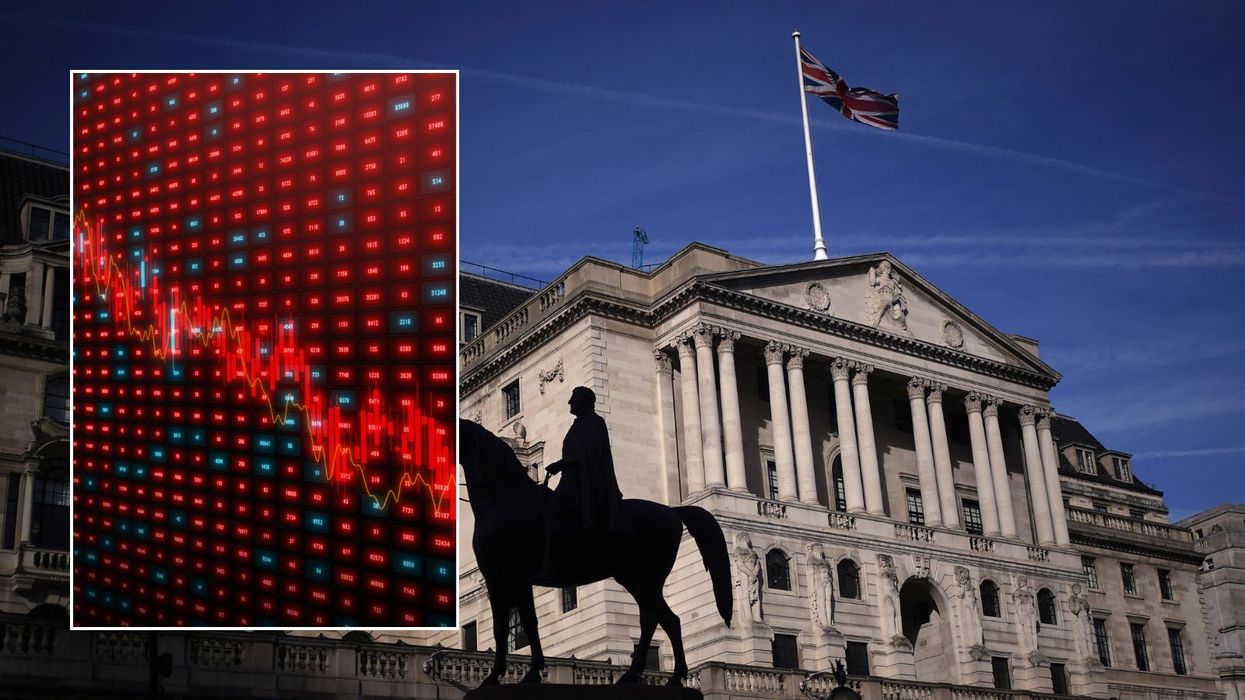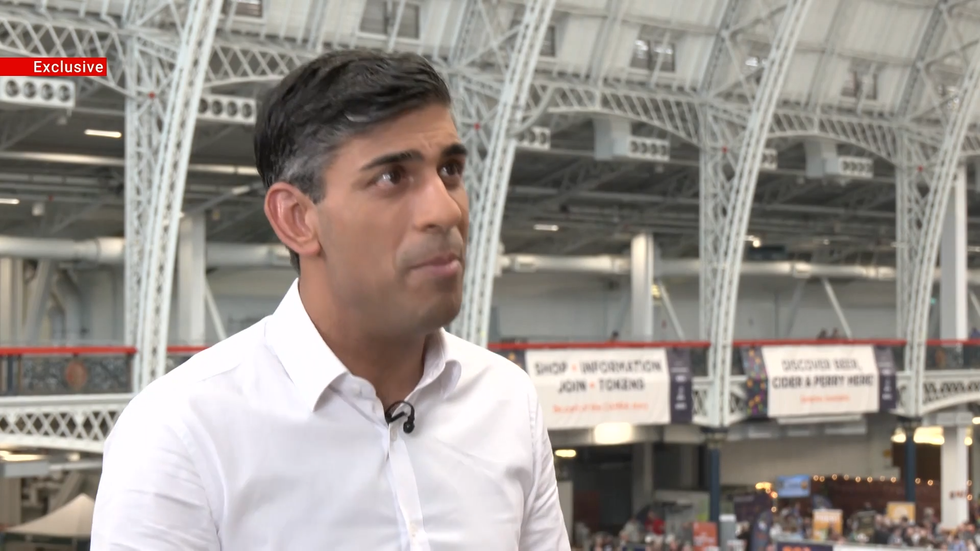Bank of England 'unlikely' to slash interest rates next week as UK economy flatlines

The central bank is "unlikely" to slash rates, according to experts
|GETTY/PA

Currently, the Bank of England has raised interest rates to 5.25 per cent with many Britons hoping for a cut in the near future
Don't Miss
Most Read
Latest
The Bank of England is "unlikely" to bring down interest rates next week due to the UK economy flatlining, according to analysts.
Earlier this week, figures from the Office for National Statistics (ONS) revealed that there was zero per cent growth in gross domestic product (GDP) for the month of April.
This comes as a blow to Prime Minister Rishi Sunak's claim that the country's economy has bounced back since falling into a "technical recession" towards the end of last year.
A country is considered to be in recession if it experiences two consecutive quarters of negative economic growth with the UK economy being in this scenario in the final months of 2023.
In recent months, the ONS has reported growth with the UK economy seeing 0.6 per cent in the 2024 Q1.
However, this latest GDP figure suggests more progress needs to be made which could impact the Bank of England's decision-making over rates.
Do you have a money story you’d like to share? Get in touch by emailing money@gbnews.uk.

The lastest GDP figures come as a blow to Prime Minister Rishi Sunak
| GB NewsOver the past two years, the central bank has hiked the country's base rate as part of its efforts to ease inflation in the UK.
Interest rates are currently sitting at 5.25 per cent and have been held at this level since August 2023.
While this has been beneficial to savers, mortgage holders and other debt borrowers have seen their repayments skyrocket over the period.
With the Consumer Price Index (CPI) rate easing to 2.3 per cent, analysts are betting on a rate cut from the Bank sooner than later.
Despite this, the most recent GDP figures suggest Britons will still have to wait a few more months before interest rates are brought down.
Lindsay James, investment strategist at Quilter Investors, blamed the country's struggling economy on bad weather and warned households to not expect any drastic action from the Bank of England next week.
He explained: "The great British weather can be thanked for today’s poor GDP figures, as persistent rain has kept consumers from spending and caused economic growth to grind to a halt for the month with no growth registered.
"With rainfall in April 55 per cent higher than average and the wettest April since 2012, it is perhaps no surprise to see the economy struggle as a result, with sectors such as retail, construction and pubs all severely impacted."
"Whilst the weather has thankfully improved of late, likely boosting May’s reading, the second quarter is off to a slow start and has a lot of catching up to do if it is to match the 0.6 per cent growth seen in the first quarter.
"However, despite this renewed slowdown, it will likely not be enough for the Bank of England to cut interest rates next week. Wage inflation remains elevated and consumer price inflation is expected to tick higher in the coming months, and thus the BoE won’t want to deviate from its strategy just yet."
LATEST DEVELOPMENTS:

Homeowners have struggled with rising mortgage repayments as a consequence of high interest rates
| PEXELS"The election campaign has also seen Labour and the Conservatives putting forward proposals to increase economic growth in an incredibly restricted fiscal environment.
"Given tight public finances, it is unlikely substantial growth will be conjured up without significant additional borrowing, something neither party, nor the bond market, is particularly keen on.
"With the result looking increasingly like a foregone conclusion, Labour will hope its plans to invest in ‘green’ jobs and infrastructure will help the economy break out of its' current state of malaise, but without the necessary fiscal headroom this is likely to be an uphill struggle."
The Bank of England's Monetary Policy Committee (MPC) will next make an announcement regarding interest rates on June 20, 2024.










